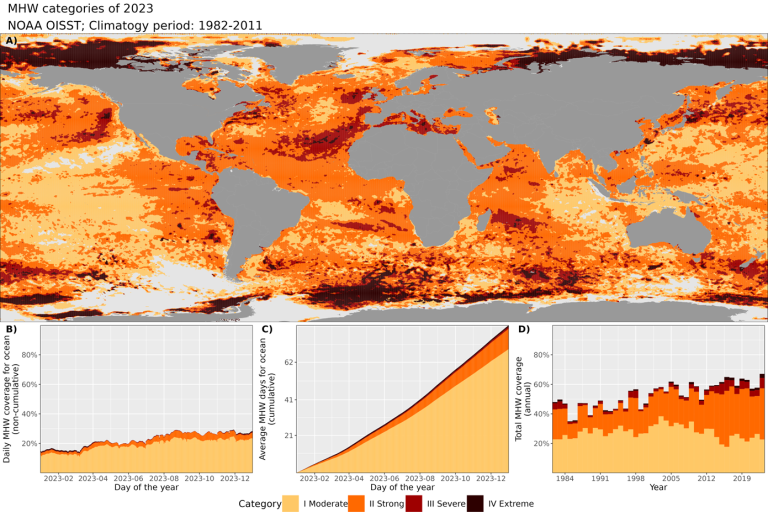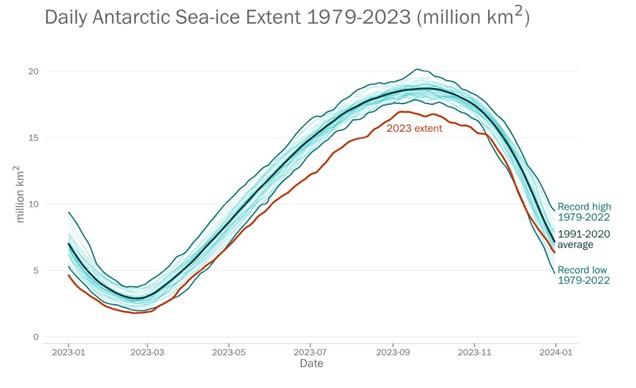By Anders Lorenzen

The United Nations (UN) has released a dire warning about the scale of climate impacts reported in 2023.
This week, the UN body, the World Meteorological Organization (WMO) said that every major global climate record was broken last year and warned that 2024 could be even worse with the highest concern being ocean heat and shrinking sea ice.
The annually released report, the State of the Global Climate found that average temperatures hit the highest level in the 74 years of record-keeping by a significant margin reaching 1.45 degrees C above pre-industrial levels.
The world’s oceans reached the warmest temperatures in the 65 years data is available, with more than 90% of the seas having experienced heatwave conditions during 2023 harming food systems.
Red alert
Responding to the report, WMO Secretary-General Celeste Saulo said: “The WMO community is sounding the Red Alert to the world. What we witnessed in 2023, especially with the unprecedented ocean warmth, glacier retreat and Antarctic sea ice loss, is cause for particular concern.”

Climate change, fueled by the burning of fossil fuels, coupled with the emergence of the natural El Nino climate pattern, pushed the world into record territory in 2023.
The agency’s head of climate monitoring, Omar Baddour, explained that there’s a “high probability” that 2024 would set new heat records, saying that the year after an El Nino was typically warmer still.
The report estimated that within the last year, the sea ice content in the Antarctic had dropped to 1 million km2 below the previous record, this is equivalent to the size of Egypt.
The trend of ocean warming continues to head in one direction. In the last decade, the rate of sea-level rise doubled as compared to the previous decade of 1993-2002, WMO explained. The report outlined that ocean heat was concentrated in the North Atlantic with temperatures an average of 3 degrees Celsius above average in late 2023, affecting delicate marine ecosystems and many fish species have fled north from this area seeking cooler temperatures.
Categories: climate change, impacts, oceans, science, UN